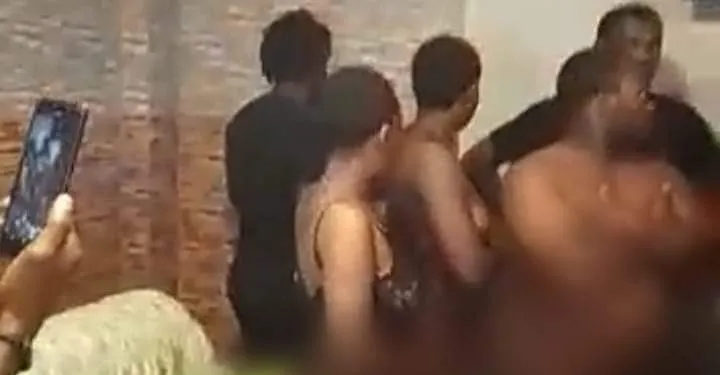The Commission on Human Rights and Liberties of the Cameroon Bar has expressed its dismay with the proliferation of videos depicting acts of torture, bullying and humiliation on social media.
In a release addressing the recent acts, the commission advocated for an end to the said videos in which most of the time, are propagated by the very perpetrators themselves who are the authors.
In the video, the release stated, “we see unarmed victims, begging people who feel the pleasure of making their prey suffer, inflicting on them a set of horrors and humiliations that violate human dignity”.
“This unacceptable situation, contrary to public policy and morality, takes on worrying proportions when the perpetrators are the police or gendarmerie officers responsible for maintaining peace and order” stressed the commission.
According to the Commission on Human Rights and Liberties, “whether it is the case of ‘Mamamdi Esther” in Nkomkana Yaoundé, the ‘Malicka’ case, the unwholesome incursion of the Forces of Law and order in a private house at Douala Bonamoussadi, the rapes of the elderly in Ombessa, it neither more or less torture and ill treatment prohibited by Article 3 of the Geneva Conventions of 1949 and its Additional Protocols of 1977”.
The acts, it added are also “prohibited by article 5 of the Universal Declaration of Human Rights, article 7 of the International Covenant on Civil and Political Rights, article 5 of the African Convention on Human and Peoples’ Rights, article 74 paragraph 1 of Law No. 2010/012 of December 21, 2010 relating to cybersecurity and cybercrime in Cameroon”.
“All these texts applicable in Cameroon,” the commission warned, “vehemently and absolutely prohibit torture, cruel, inhuman and degrading treatment, attack on the dignity of the person and even establish these acts as a war crime in a situation of armed conflict”.
Perpetrators must be punished
The noted cases of crimes recorded and disseminated online, according to the body, must not go unpunished. Describing torture and ill-treatment as the ultimate violation of human rights, it noted that they smear the image of Republic and dehumanise the rights of both the victim and the torturer.
In the release addressing these ills, the commission explained that “by legislating and internalizing these additional Conventions and Protocols, Cameroon clearly wanted to end sleep deprivation, prolonged isolation, fear and waterboarding, and the undressing of all odious practices and methods in a democratic state”.
The arm of the Cameroon Bar cited a 2018 report by the Ministry of Justice on the State of Human Rights in Cameroon, revealing the state of administrative and disciplinary sanctions for attacks on the physical and moral integrity of those in charge of Law enforcement.
As of December 31, 2018, there had been no sanction meted out on gendarmes, nine police reprimands and one revocation, and only two prison administration reprimands.
These figures, the commission noted, are a “… concrete translation of the impunity of those charged with the application of the law and the respect of public policy despite their arrests often announced with much publicity”.
“Displaying the private parts of victims is simply an infringement of the privacy of others and / or publishing electronic data of a private nature: it is an offense against criminal law” it added.
In this light, the Commission on Human Rights and Liberties of the Cameroon Bar, the release went further, “strongly condemns all these unwholesome and anti-democratic practices in a country in constant search of peace, living together, and social cohesion”.
The aforementioned “acts of barbarism and this ambient violence,” the commission pressed, “require that in an emergency, the authors, accomplices and spreaders of these facts be arrested, made available to justice and above all punished. This is the guarantee of the existence of a rule of law”.



